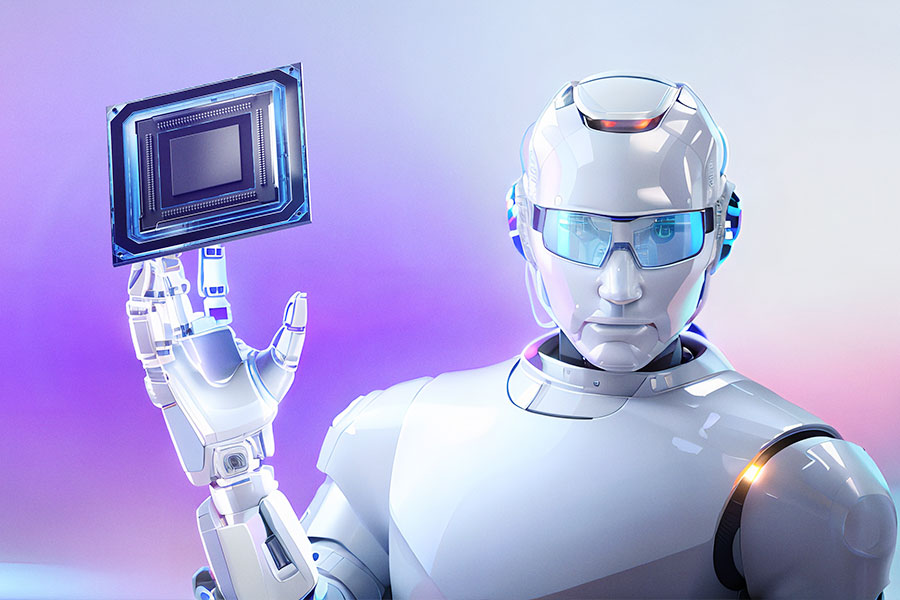
By Li Panpan
(JW Insights) Nov 15 -- Nikkei Asia published an article by investment advisor Nina Xiang with the opinon that it is high time for the world to realize that China is not becoming the artificial intelligence superpower that many have feared.
Nina Xiang is managing director at TH Capital, an investment advisory and asset management firm. She is the author of the book “US China Tech War: What Chinese Tech History Reveals About Future Tech Rivalry.”
Excerpts of the article published by Nikkei Asia on November 13:

ChatGPT came from the U.S., not China. Despite an official goal of leading the world in AI by 2030, Chinese technology companies are struggling to catch up with their U.S. counterparts.
Some of China's shortcomings are tied to external factors. The deepening decoupling between the American and Chinese technology ecosystems will increasingly threaten the ability of Chinese companies to secure the computing power critical to advances in AI.
This means that the U.S. should no longer frame the two countries' dynamic in pioneering AI technologies as a close race. China is unlikely to be a challenger to U.S. tech supremacy for a long time,
The hype has mounted around China's AI capabilities from various directions. It is frequently highlighted that China has filed more than half the world's AI patent applications and that Chinese researchers are the leading producers of published AI research.
According to the China Academy of Information and Communications Technology, a state body, China accounted for 24.7% of AI startups globally in 2020, second only to the 38.3% share of the U.S.
But, technological innovation, especially in AI, is not a linear process, nor is it evenly distributed. The impact of ChatGPT has been greater than that of the combined output of thousands of Chinese AI startups.
This kind of disruptive innovation has played out in history repeatedly. The introduction of the iPhone in 2007 revolutionized mobile computing and led to the app-based economy. The creation of deep neural networks like AlexNet in 2012 marked a turning point that led to the current wave of AI advances.
In August, China finally authorized the public release of generative AI services from eight major Chinese tech companies. But these ChatGPT copycats are heavily censored and do not really bring any significant advances over U.S. counterparts, which continue to become more sophisticated.
ChatGPT, for example, continues to add new features and now can interact with user input in the form of text, audio, or images and can be customized by users wanting to create their own GPT or generative pre-trained transformer. Meanwhile, Baidu's Ernie Bot is still trying to catch up with features added in previous updates of ChatGPT.
The U.S. should worry about supply chain vulnerabilities rather than China's AI innovation.
In China's present environment, it is hard for companies to make long-term plans and investments, attract and retain talent, and comply with erratic regulation. The effect of these harshening conditions can be seen in the sinking market capitalization of major Chinese tech companies.
At the start of 2021, Tencent Holdings, Alibaba Group, and Meituan had a combined market capitalization of more than $2 trillion, or close to half that of their three closest U.S. peers. Now, the collective market cap of the Chinese trio is $655 billion, less than a tenth of that of their U.S. counterparts.
The rise of Chinese technology companies was facilitated by their integration into the global tech ecosystem. This included capital inflows and spillover from U.S. investors and talent. However, decoupling is making it increasingly challenging for Chinese tech companies to play catch-up.
(Li PP)
RELATED
-
US giant Alphabet CEO Pichai: China will be at forefront of AI
11-20 17:38 -
Apple’s Chinese supplier Luxshare Precision gives up $330 million investment in India
11-20 17:28 -
European Commission President von der Leyen will visit China in wake of the EU’s ongoing probe into China’s subsidies on EV industries
11-20 16:59









